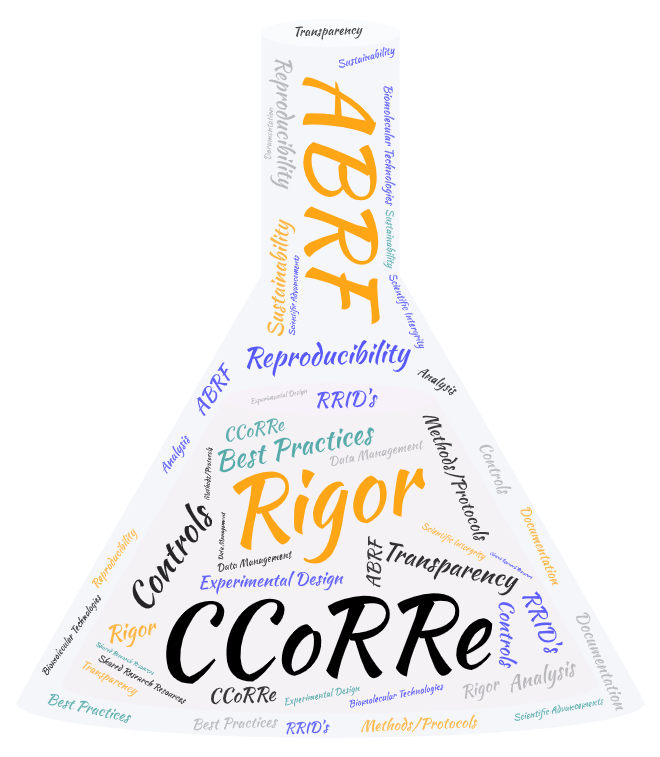
The mission of CCoRRe is to enable rigor, reproducibility, and transparency in scientific research that uses advanced technology and development of sustainable best practices via use of Shared Research Resources (SRR’s), also commonly referred to as Core Facilities. SRR’s support a significant portion of the work conducted at research institutions, thus playing a critical role in achieving efficient use of research funds and broadening access to advanced skills, expertise, and technologies. Since SRR’s generate the majority of research data at many institutions, their role in developing and sharing their expertise is vital to performing impactful research. CCoRRe’s efforts are focused on building educational resources, sharing critical best practice guidelines, and providing important tools to the SSR community that will foster rigorous, reproducible, and transparent biomolecular research.
Questions or interest in joining an ABRF committee?
New: CCoRRe Resources (April 2022 draft manuscript and links to templates, best practices)
Scientific Rigor, Reproducibility, and Transparency enabled by the ABRF Research Groups
The ABRF Research Groups (RGs), represent expertise for an array of cutting-edge and established technology platforms, perform multicenter research studies to determine and communicate best practices and community-based standards. This review provides a summary of the contributions of the ABRF RGs to promote scientific rigor and reproducibility in Cores from the published literature, ABRF meetings, and ABRF RGs communications.
Core Lab Reproducibility Survey
There is strong interest across the ABRF community in the overall conduct of rigorous and reproducible science, as demonstrated by the response to a recent survey conducted by the CCoRRe (Knudtson et al, J Biomol Tech. 2019 Sep;30(3):36-44). The survey was designed to develop understanding of how NIH initiatives on advancing scientific rigor and reproducibility influenced current services and new technology development. In addition, the survey aimed to identify challenges related to the conduct of rigorous research, and opportunities for improvements, new practices and resources that can support the best core science. 243 individuals from 21 countries responded to the survey, and 53% of them identified as members of the ABRF. The majority of the survey respondents were core facility directors or managers (69%) and work in an academic setting (72%) in the United States (79%), representing a wide range of technologies.
Learn more about the survey results:
See the article on the survey from the September 2019 issue of Instrument Business Outlook
Read the report in the ABRF Journal of Biomolecular Techniques
View the poster presented at ABRF2019 Annual Meeting in San Antonio Texas
CCoRRe Committee Membership
- Andrew Ott, Northwestern University (Co-Chair)
- Christopher Gregory, University of North Carolina School of Medicine (Co-Chair)
- Patricia Basta, University of North Carolina at Chapel Hill
- Sridar Chittur (Executive Board Liaison) - SUNY Albany
- Kevin Knudtson, University of Iowa
- Susan Meyn, Vanderbilt University Medical Center
- Sheenah Mische, NYU Langone Medical Center
- Katia Sol-Church, University of Virginia
- Caterina Strambio-De-Castillia, University of Massachusetts Medical School
- Michael Sturges, Miltenyi Biotec
- Doug Taatjes, University of Vermont
- Frances Weis-Garcia, Memorial Sloan Kettering Cancer Center
- Nicole (Amanda) White, Cincinnati Children's Hospital Research Foundation
